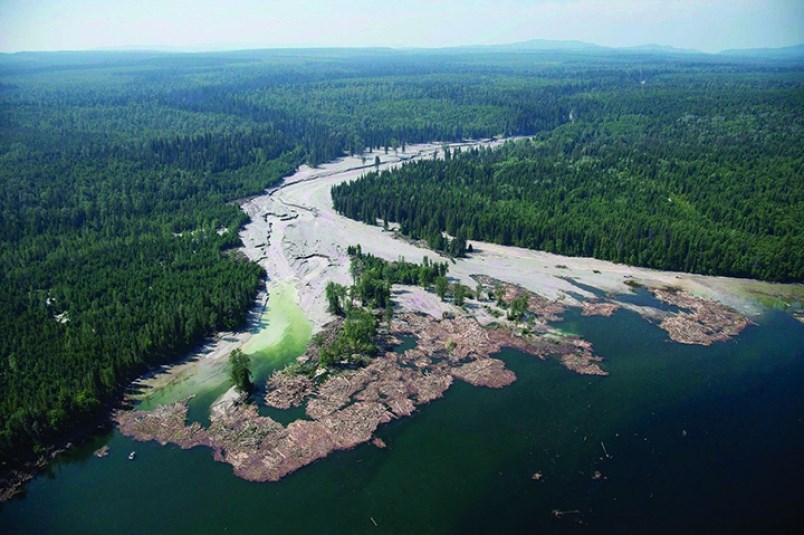The regulatory body for engineers in B.C. has disciplined a third engineer for unprofessional conduct connected to the failure of a tailings pond dam failure at the Mount Polley Mine on Aug. 4, 2014.
In a consent order, former engineer Todd Martin agreed to pay a fine of $25,000 and $69,000 in legal costs for his role in the dam failure, a statement issued by Engineers and Geoscientists British Columbia on Friday.
“From March 2011 to December 2012, Mr. Martin was the senior geotechnical engineer responsible for the geotechnical engineering work at the Mount Polley Mine TSF,” the statement said. “In the Consent Order, Mr. Martin admitted to some of the allegations that aspects of his engineering work were not consistent with prudent engineering practice, including his failure to recommend drilling from the 2011 embankment crest into soils under the footprint of the TSF perimeter embankment to improve the characterization of embankment foundation soils. Mr. Martin further admitted that he failed to make a record of important field observations in 2011, a matter which constitutes unprofessional conduct.”
Martin ceased to be a practising engineer in 2018 and resigned his engineering licence in January 2020, the statement added. If Martin does apply to register as an engineer again, there are additional steps he will be required to follow outlined in the consent order.
Under the Engineers and Geoscientists Act at the time of the dam failure, $25,000 was the maximum possible fine. The act has since been repealed and replaced by the Professional Governance Act, which allows for fines of up to $100,000 for individuals and $250,000 for companies.
Engineers and Geoscientists BC announced disciplinary action against Martin's colleagues, former engineer Stephen Rice and engineer Laura Fidel, in August 2021.
The investigation into the cases took years, and involved reviewing thousands of documents, the statement said.
On Aug. 4, 2014, the tailings pond at the Mount Polley copper mine collapsed, sending 20 million cubic metres of water and tailings slurry into Hazeltine Creek, Polley Lake and Quesnel Lake, near the town of Likely, B.C.. The disaster was one of the largest dam failures in the past 50 years, and cost Imperial Metals $67 million in clean-up costs and lost revenue.
The disciplinary panels did not make findings as to the cause of the embankment failure, which was separately addressed in reports by the Chief Inspector of Mines and Mount Polley Independent Expert Engineering Investigation.
“This marks the final chapter in a long and difficult story for our province and our professions,” Engineers and Geoscientists BC CEO Heidi Yang said in the statement. “Over the past several years, our focus has been on delivering a comprehensive, rigorous, and fair process, and we’re pleased to be able to provide the public with these results. The conclusion of these cases, combined with resources we’ve developed to improve dam safety, will strengthen our professions and our province’s environmental safeguards.”


